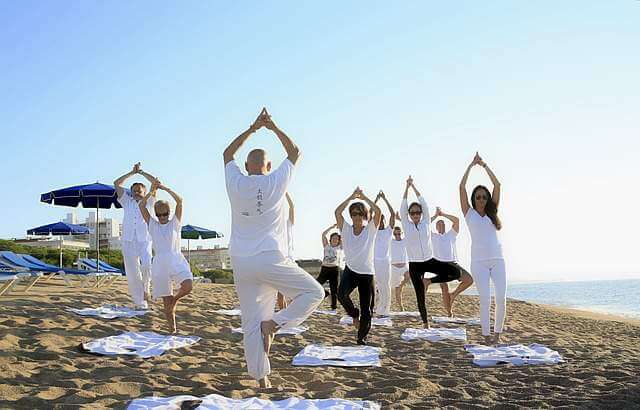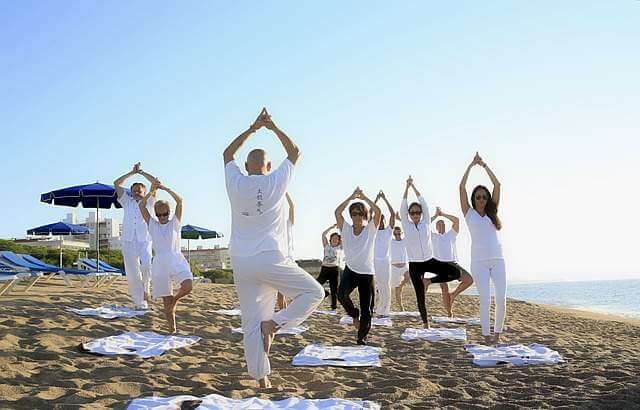I don’t think I know a single adult out there who hasn’t complained, at least once, about not having enough time for something or other. So often I hear friends, colleagues, acquaintances, and even perfect strangers saying something along the lines of If I had another hour in the day, then I’d be able to get in my workout, or If I had another hour in the day, then I’d be able to get some more sleep, or the also popular If I had another hour in the day, I’d be able to cook more regularly and eat more healthily instead of going out to eat all the time. Does this sound familiar to you?
Unfortunately, we all only have 24 hours in each day, and nothing we can do will make us have more hours in the day. We all wake up each morning with a clean slate in front of us, a blank canvas that gives us untold number of opportunities to take, and it’s up to us to decide what we will or won’t do with our day. How we decide to spend our time every day is obviously a matter of personal preference, but I think many of those aforementioned folks above — myself included — will eventually come to a metaphorical crossroads wherein we all realize that it’s imperative that we do whatever it takes to actually take care of our bodies: to nourish it well, to exercise it vigorously and regularly, and to even take a moment to simply be present and for once, turn-off the noise and cacophony that litters our mind and days.

That last point, about taking time to unwind and simply be present, is a biggie. We all complain that there aren’t enough hours in the day, so many of us are stressed about something or another, and so it’s probably without question, then, that our health suffers as a result. We feel overworked, our bodies hate us (and we hate our bodies), and when it’s time to rest each day — provided we acknowledge that we actually need to get an ample amount of rest each day — it’s hard for many of us to turn off technology and just simply go to sleep.
What if I told you that there’s something out there, something that is literally thousands of years old, that could help rectify some of these issues? Something that can help you sleep at night, that can help you become less stressed during daily life, something that can get you to a place in your life where you can just contentedly BE in the present moment and ignore the cacophony? Oh, and this thing can also be great for your health — mental, physical, and spiritual, if you choose — and you could make it as complicated as you want it to be? Sounds pretty awesome, right?
Allow me to introduce you to one of my favorite four-letter words: yoga.
As a practice, yoga has been around for thousands of years. There are so many different incarnations, or practices, of yoga out there now that if you say to yourself Oh, but I’m not a yoga person; I’ve tried it before, I can all but promise you that you just haven’t found the right type for your needs. There are yoga practices that are cardiovascular invigorating and challenging, and there are others on the opposite end of the spectrum that quietly, slowly, and fluidly help you to “recenter” your body and mind while flowing through poses that seem to effortlessly connect to one another. Likewise, you can go to a boutique yoga studio to get your daily dose of zen, watch a DVD and follow along at home, or simply subscribe to a yoga channel on YouTube or use an app on your phone. The possibilities are seriously unlimited; it’s just a matter of finding a type or practice that jibes well with your lifestyle and satisfies your needs.
If you’re at all on the fence about whether you should include yoga in your regular fitness program, I implore you: don’t be. Sure, it can be intimidating to try something new, and you might even feel awkward or foolish or worry that you’re going to do something incorrectly or say something stupid, but it doesn’t matter. We are so infrequently given the opportunity to try something new in our adult lives — and be bad at it, at least initially — that we get scared of going outside our comfort zones. Here’s the thing, though: nothing can ever grow in a comfort zone. It’s not until you expose yourself to the Great Unknown that you can learn more about yourself and perhaps even find a new passion — however challenging it may be.
Below, I’ll quickly describe just a handful of the numerous benefits that yoga confers to its practitioners:
It makes you go slowly: While there are some fast-paced yoga practices out there, many of them fall into the more slow-moving camp. It can initially be tough to feel like you’re “not doing anything,” especially if you’re used to always being on the go or working up a sweat, but yoga is great for teaching you how to slow down and how to be more mindful of yourself and your surroundings. Many of us become multitasking pros (or we convince ourselves that we are) that it can seem downright awful to just focus on one thing for once, but yoga can teach you how gratifying it is to simply take things slowly, as they happen, and to focus on every single aspect of a particular thing (your breath or your body as it moves, for example). Developing this razor-sharp focus in yoga can definitely transfer over to other areas of your life, too.
It can help teach you meditation: Again, so many of us get stuck in the go-go-go rut all the time that at the end of the day, we fail to recall exactly what we did during the previous hours, whom we spoke with, or even what we saw. Just as yoga teaches you how to take life more slowly and intentionally, so, too, can it teach you how to meditate. Many people erroneously think of meditation as being some hippy-dippy kum-bah-yah affair, but it’s not; in fact, once you begin meditating and learning how to quiet your brain and mute your surroundings, I think you’ll wonder how you ever functioned without meditating in the first place.
It can give you some literal or figurative balance: Particularly if you regularly do other exercises, like walking, running, or cycling, it’s likely that you’ll develop some overuse injuries or strains from doing the same thing all the time. Yoga can be fantastic at making you into a more well-rounded, more fully-developed athlete. In particular, it can help rectify many muscular imbalances and help mitigate muscular over compensations — both problems that plague endurance athletes. It’s probably unsurprising, then, to mention that there are endurance athlete-specific yoga practices out there, too, such as yoga for runners.
There are countless other benefits to developing your own yoga practice, and I imagine that just like with most other activities, the more frequently you do it, the better it’ll make you feel and the more comfortable or adept you will become at it. The nice thing about yoga is that it can meet you where you are, meaning that you can adjust the poses and depths to suit your current comfort or ability levels. With a little research and some flexibility (again, literally and figuratively), you’ll be well on your way to finding a yoga routine that you can regularly incorporate into your fitness routine, and who knows? Maybe you’ll even be able to translate the numerous benefits you incur into other aspects of your daily life.
Writer’s Bio: Dan Chabert
 An entrepreneur and a husband, Dan hails from Copenhagen, Denmark. He loves to join ultramarathon races and travel to popular running destinations together with his wife. During regular days, he manages his websites, Runnerclick, That Sweet Gift, Monica’s Health Magazine and GearWeAre. Dan has also been featured in several popular running blogs across the world.
An entrepreneur and a husband, Dan hails from Copenhagen, Denmark. He loves to join ultramarathon races and travel to popular running destinations together with his wife. During regular days, he manages his websites, Runnerclick, That Sweet Gift, Monica’s Health Magazine and GearWeAre. Dan has also been featured in several popular running blogs across the world.





